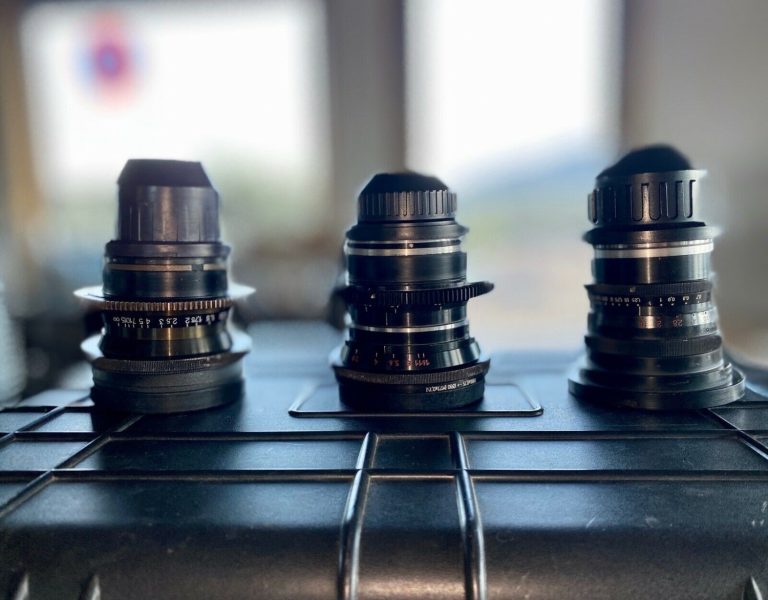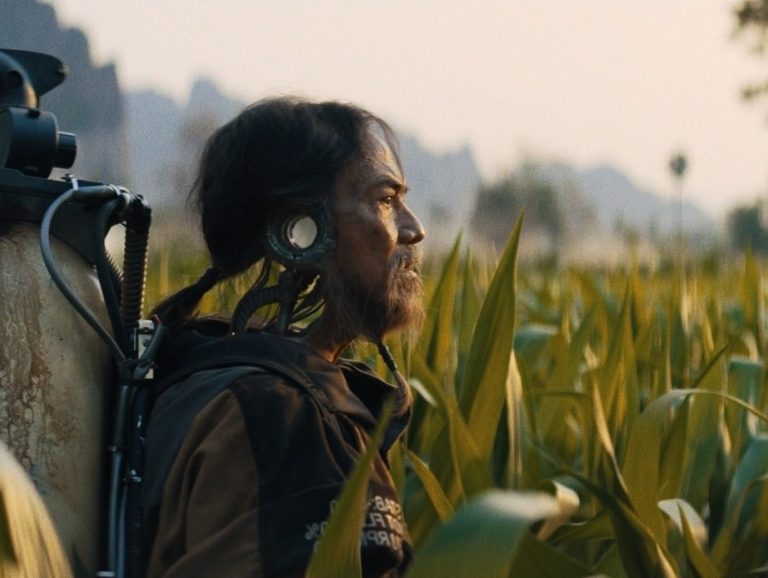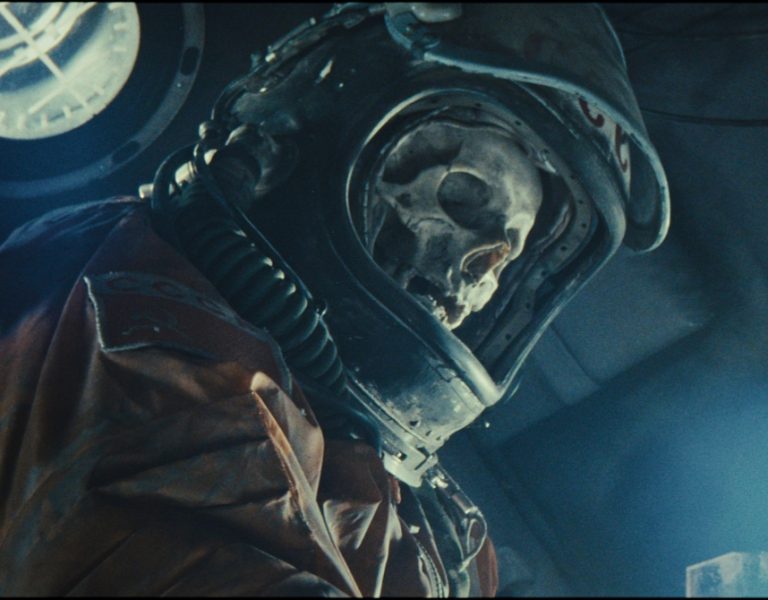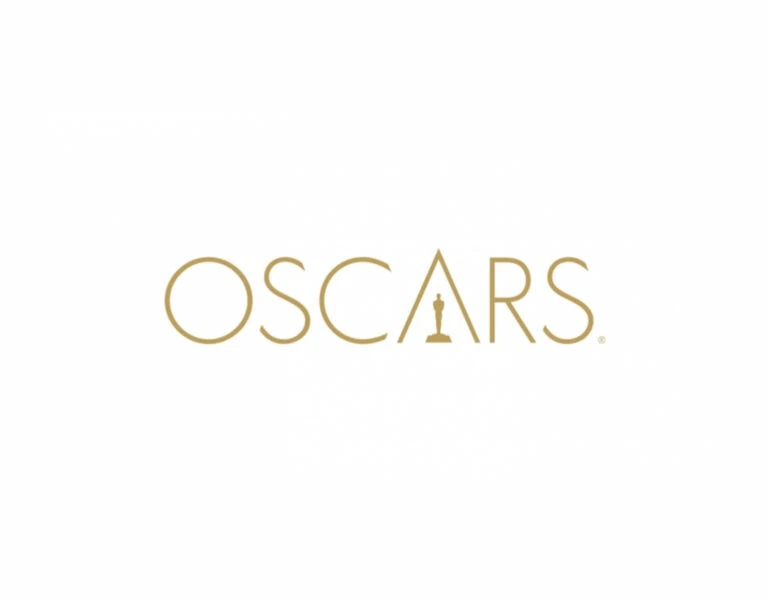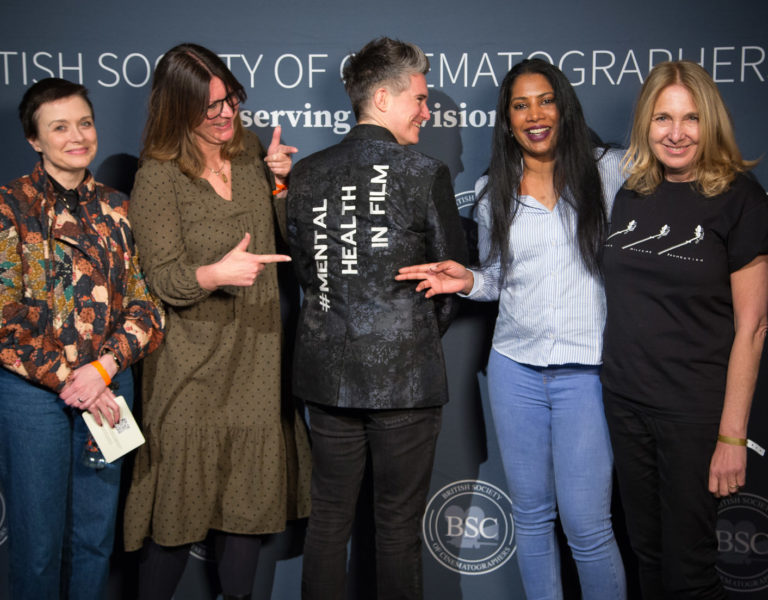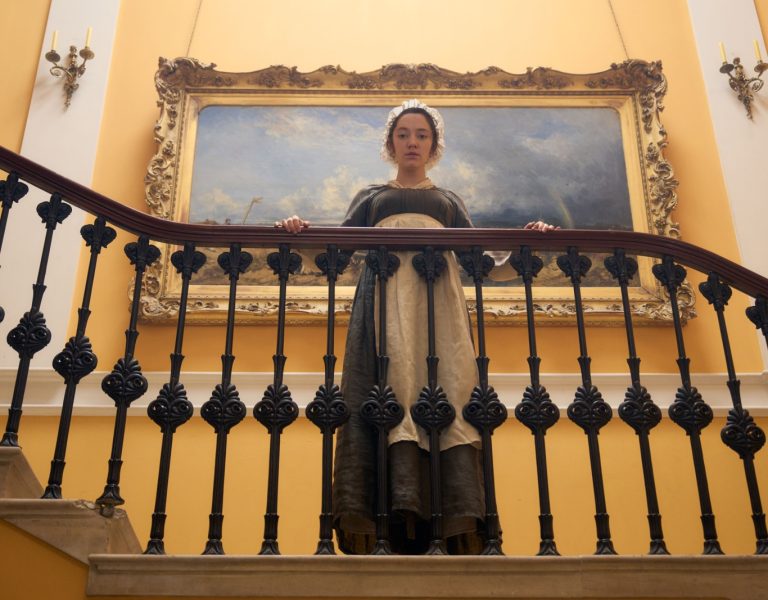Home » Features » Opinion » Across The Pond »
There was a pandemic-delayed Academy Awards show last month. One performer slapped another and eventually got banned from coming to those awards for a full ten years. Presumably though that same performer won’t be banned from going to, say, the Vanity Fair party, or any of the post-ceremony celebrations, in the meantime. So, the degree to which this particular banishment actually means anything remains to be seen.
As for keeping that ten year stretch in perspective, that’s about the same amount of time a recent UN report says we have left to actually cut our carbon emissions in half – and not just talk about it – lest we face even more dire climate collapse than we already do.
Though whether people are paying attention to that, in the midst of ongoing war in Europe, and the specter of empty shelves and sparse supplies again with new COVID lockdowns in China, remains to be seen. So thinking of an unimpeded Oscar telecast in ten years’ time then remains an unfettered act of optimism.
As for this year, there was a lot of attention paid to “the slap,” of course, in the days right after the show and yet the social media buzz created by Will Smith’s assault on Chris Rock still barely moved the needle on viewership, which was up from two years ago, sure, but still the second lowest ever.
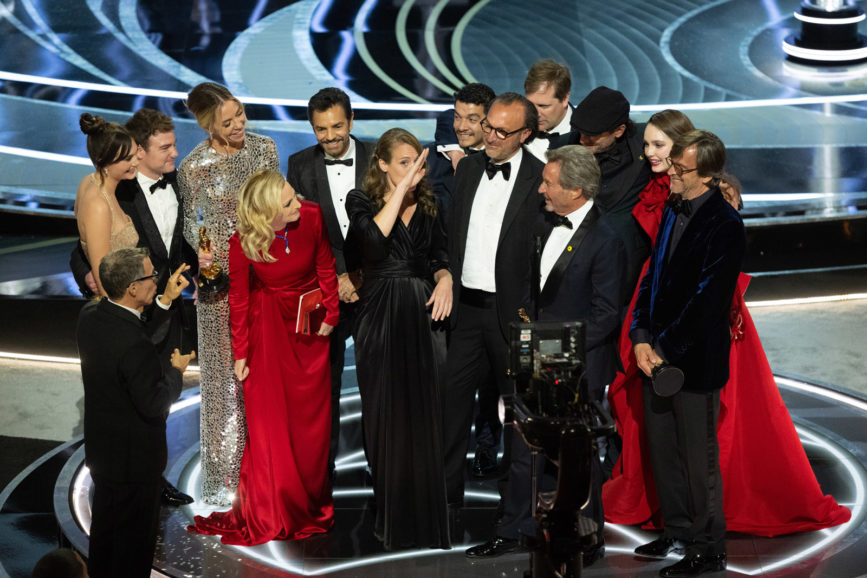
When this correspondent was en route to the show that morning, already anomalously dressed in a tux, while on pre-showbiz rounds, the most common response received was, “Oh, are the Oscars tonight?”
The civilian population already has other things on its mind.
This despite the fact that this year’s telecast even had a theme, namely “Movie Lovers’ Unite!” Which seems odd that a ceremony that originated as a way of honouring filmic arts now feels the need to convince potential viewers they still do that.
Of course, it didn’t help that nearly all the craft awards were given outside the broadcast, about an hour before the ceremony, in what was actually dubbed “Golden Hour,” by the Academy (and you are forgiven if it conjures up images of “Red Hour” from the original Star Trek.)
The cinematography category famously escaped that censure, however, so when Greig Fraser ASC ACS pulled off the rare-as-an-Ivory-billed-woodpecker stunt of being a below-the-liner who actually got to accept his award on TV, when he came backstage, he both echoed – and in one case presaged – his off-broadcast colleagues’ comments in that same press room, about what a collegial atmosphere director Denis Villeneuve had created on Dune, which, like a voracious sand worm, was gobbling up nearly available craft award that night.
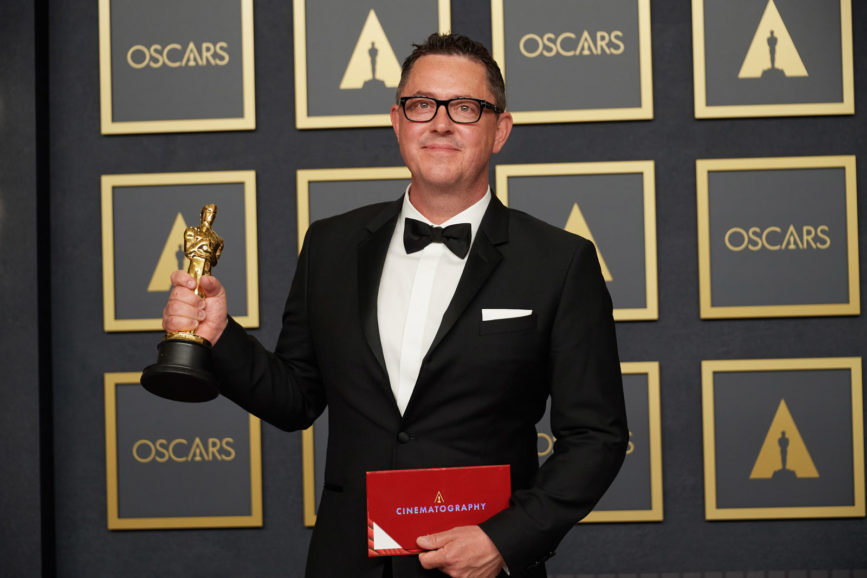
“This is the most talented bunch of collaborators I’ve ever worked with,” he said. “And, you know, every single time I get together with these people, I’m always at the back of the room looking at them going, ‘I am so honoured and humbled and proud to be in the same room with these people’. I mean, (production designer) Patrice (Vermette)’s work – I don’t know if everyone’s seen Patrice’s work or Denis’ on Arrival, but it’s insanely amazing. And to be part of that team and Joe’s work with Denis is amazing. And to be inserted into that, I feel very humbled. I can’t think of a better word.”
He also addressed the whole “Golden Hour” controversy too, calling that “45 minutes that we did (of early presentations) … so much fun. And do you know why it is fun because it was a bit more informal. But it is tricky, you know. And I don’t mean we balance economics with the award shows, but films are made by, you know, the sound recorders, by visual effects supervisors, by the editors, by the production designers. That’s how films are made. And it seems odd to have some random relegation. Everybody in this crowd realises and understands why this happens. Like, we’re not silly. And we understand the economics. But at the same time, it is up to us, I think to change the economics, change the fact that, you know, we want to encourage kids who are watching these awards to go, ‘You know what, I’m not an actor, I’m not a director, I’m not a producer, but I want to be a makeup artist.’ It’s a little short-sighted. I get it. But I just want my particular collaborators – particularly, production design, editing, makeup and hair, you know, to be equally rewarded for this – for the job they do.”
One of Fraser’s colleagues, editor Joe Walker, talked about those rewards later, too. Though he almost didn’t get a chance to. He showed up backstage immediately after “the slap” took place.
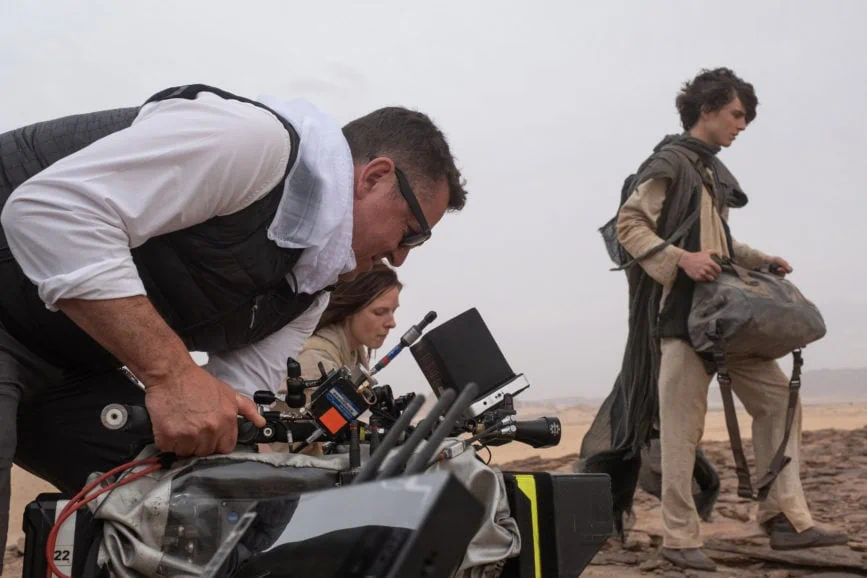
Normally, we press denizens hold up the auction-like number cards they give us, to queue up our questions, each time a new winner is brought into the room. Particularly if someone has just won for editing a film like Dune.
But no one had a question for him. Everyone was still too flabbergasted by what we had just seen on the monitors. The room remained quiet. Seeking to avoid collective embarrassment, your BC correspondent hastily raised his auction card, before Walker could leave, and asked about that sense of collaboration that the earlier craft winners – including sound and VFX – had talked about.
“Well you know, he replied, “we are all, like a well-rehearsed band that plays together and have played together many times And, you know, the sound team and I worked together on Blade Runner (2049) obviously, and Hans Zimmer and I go back to – 1998 was the first time we worked together, on the last – the last thing he did at the BBC… Denis is an amazing leader and an incredibly skilled and trusted director who comes with tremendous specificity, I would say. He comes along with such a plan that it is my joy to be able to, kind of, interpret what his plan was but also to say, hey, have you ever thought of doing this? And he pays me the enormous compliment of sometimes loving what I do and it remaining in the film. So, I love working with Denis and his team.”
It seemed then the ball had gotten rolling, and another question would follow. But in the slappy aftermath, none emerged.
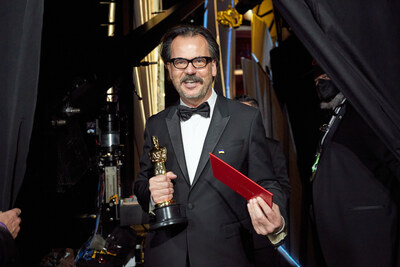
Walker may have given a slight shrug, resigning himself to an early exit from the dais after all, when suddenly, he leaned back into the mic: “Does anybody want to ask me about what it is like, as an irony, that, as an editor, my speech was edited tonight? Anybody – nobody interested in that? Who wants that one? I will give it to 201. Thank you, my friend.”
Walker peered back at us, randomly selecting one of those numbered cards, forming, then answering the question himself. “It went down well, I thought, the speech.,” referring to what they’d aired from his own remarks. “And yet, I just saw it go out, and they cut the beginning and the middle and the end of it. And that’s an irony. We all stand together in the Academy with equal strength, and I feel strongly that that was a disservice to our eight categories that were not televised live. We understand the pressures on the Academy, financially, but also, I think we all stand together. The original statue of the Oscar has five reels. You have five circles that represent the five branches of the academy as they started, and they are of equal size and strength. So, Mr. 201, thank you for your question that I answered for you.”
And with that, the front-of-house spell was broken, and questions for Walker started coming from both the room, and via the monitors, where those in the virtual press lounge participated (a pandemic-era change the Academy will likely keep, since it opens things up to more outlets who otherwise wouldn’t have access).
But during that time, the Academy audience had given Smith a standing O, and the evening felt like it had gone irretrievably off the rails.
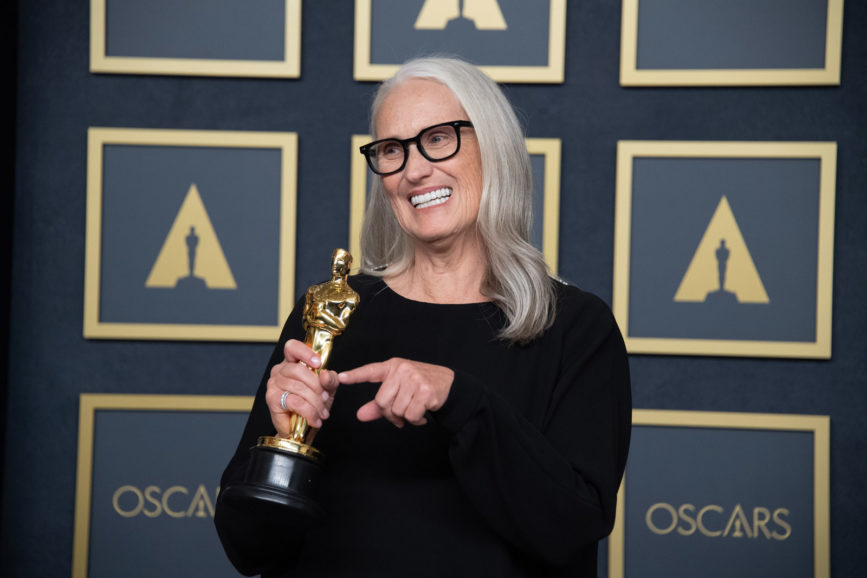
Still, there were a few other grace notes. When Jane Campion came back with her Best Directing Oscar for The Power of the Dog, she was asked about all the contributions that went into the film and replied that it was “impossible to win an award like (this) without having an extraordinary team behind you,” generously naming cast and crew members, and their contributions. She called DP Ari Wegner ACS “an amazing young woman cinematographer who I think is just such a great photo storyteller and always stretching for the poetic.”
There were also a couple of thoughts about cinema’s future, and its larger role, in the unknowable future ahead of us.
Sian Heder, who directed this year’s Best Picture, CODA, and won a statue for her writing efforts, said later that “stories and movies can be forces of change in our society but only when they reflect the diversity of our human experience. And so, it’s time to open the door. It’s time to welcome in people that have been marginalised and silenced. And I hope that this is the first of many, many films to come.”
Ben Proudfoot, director of the winning documentary Queen of Basketball, about hoops pioneer Lucy Harris, who was actually drafted in the NBA (and declined), made the first Olympic basketball score, and who is in the Hall of Fame, also found himself relegated to “Golden Hour,” but was undeterred by any of that by the time he found his way to the media room.
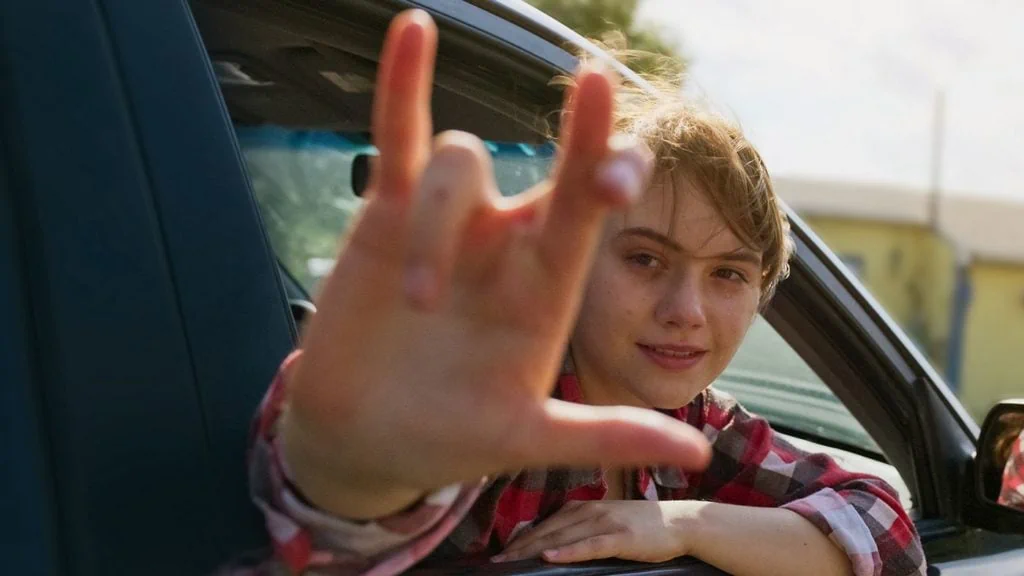
Noting that his Shaquille O’Neal and Steph Curry produced short was currently available on YouTube, he opined that his particular genre of film was “an internet medium. That’s what is interesting here is that the internet has transformed cinema, and it’s happening through short documentaries because that’s the appropriate length of time that you want to see. You’ll also notice, you know, in the film… you are close on Lucy’s face. The reason we did that is because most people watch our film on their phone. And I think short documentary is the door through which the internet will truly transform and democratise… cinema. That’s why then short documentary will be the youngest, the most diverse, the most international form of cinema going forward.”
So, superhero movies in your theatres, Best Picture winners on your streaming services, and intriguing documentaries on your phone. Diversity indeed.
And who could be against the simple sunny optimism of “going forward,” in times like these?
On which note, Emmy season will be starting soon enough. But in the meanwhile, we’ll see you in May. @TricksterInk / AcrossthePondBC@gmail.com.

